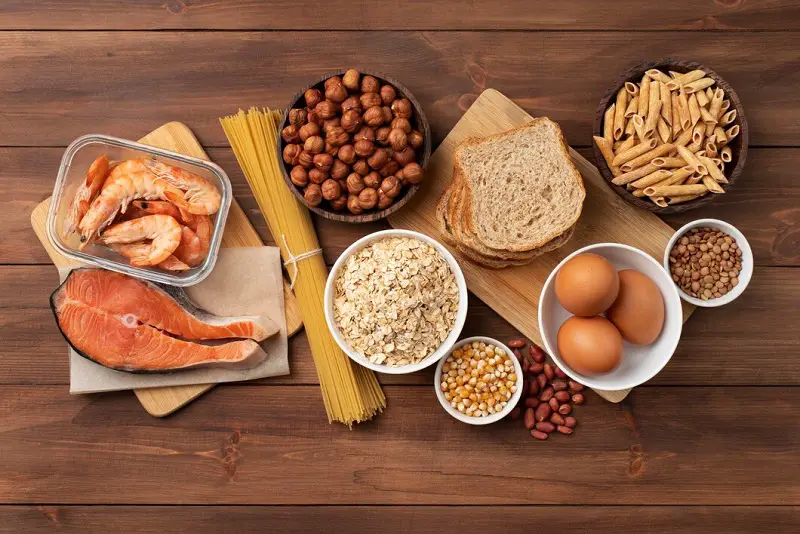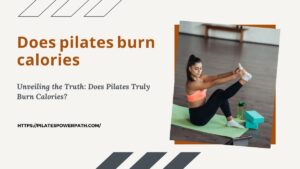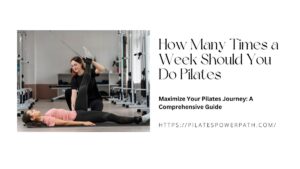Welcome to our comprehensive guide on what to eat before Pilates to fuel your body for optimal performance and energy. Whether you’re a seasoned Pilates enthusiast or just starting your journey, understanding the importance of pre-workout nutrition can significantly enhance your practice. In this article, we’ll delve into the essential nutrients your body needs before Pilates, provide practical tips for meal timing and portion sizes, and offer delicious meal and snack ideas to power your sessions.
Understanding the Pre-Pilates Nutrition
Overview of Macronutrients
Before we dive into specific foods, let’s explore the three macronutrients: carbohydrates, proteins, and fats. Carbohydrates are your body’s primary source of energy and provide fuel for muscles during exercise. Proteins play a crucial role in muscle repair and recovery, supporting your body’s ability to adapt to the demands of Pilates. Fats, particularly healthy fats, provide sustained energy and aid in the absorption of essential nutrients.
Role of Macronutrients in Fueling the Body
Each macronutrient serves a vital role in fueling your body for Pilates. Carbohydrates supply readily available energy to power your muscles through the workout. Proteins support muscle repair and recovery, helping you recover faster and make progress in your practice. Healthy fats provide a slow-burning energy source, ensuring sustained energy levels throughout your session.
Read More: Unveiling the Enigmatic Figures: Herod and Pilate in Biblical History
Importance of Timing and Portion Sizes
In addition to choosing the right macronutrients, timing, and portion sizes are crucial factors to consider before Pilates. Aim to consume a balanced meal or snack containing carbohydrates, proteins, and fats approximately 1-2 hours before your session. Avoid large meals that may cause discomfort during exercise and opt for smaller, nutrient-dense options to provide sustained energy without weighing you down.
Carbohydrates: The Primary Energy Source
Importance of Carbohydrates for Energy
Carbohydrates are essential for providing the energy your muscles need to perform during Pilates. Opt for complex carbohydrates, such as whole grains, fruits, and vegetables, which provide a steady release of energy to fuel your workout. Avoid simple carbohydrates, such as sugary snacks and refined grains, which can lead to energy crashes and fluctuations in blood sugar levels.
Examples of Carbohydrate-Rich Foods
Before your Pilates session, include carbohydrate-rich foods such as oatmeal, whole grain toast, fruit smoothies, or brown rice. These options are rich in complex carbohydrates and provide sustained energy to power you through your workout. Experiment with different combinations to find what works best for your body and preferences.

Timing Recommendations for Carbohydrate Intake
To optimize energy levels during Pilates, consume carbohydrates approximately 1-2 hours before your session. This allows enough time for digestion and ensures that your body has readily available fuel for exercise. Aim for a balanced meal or snack containing carbohydrates, proteins, and fats to provide sustained energy and support muscle function.
Proteins: Supporting Muscle Repair and Recovery
Role of Proteins in Muscle Repair
Proteins play a crucial role in muscle repair and recovery, helping your muscles recover faster and adapt to the demands of Pilates. Including protein in your pre-workout nutrition helps prevent muscle breakdown and supports the growth and repair of muscle tissue, allowing you to make progress in your practice.
Sources of Lean Proteins
Choose lean sources of protein for your pre-Pilates meal or snack, such as chicken, turkey, fish, tofu, or Greek yogurt. These options are rich in essential amino acids and provide the building blocks your body needs for muscle repair and recovery. Incorporate a serving of protein into your pre-workout nutrition to support optimal performance and recovery.
Guidelines for Incorporating Proteins
When planning your pre-Pilates meal or snack, aim to include a serving of protein along with carbohydrates and fats. This balanced combination provides sustained energy and supports muscle function during exercise. Experiment with different protein sources and portion sizes to find what works best for your body and preferences.
Fats: Providing Sustained Energy and Nutrient Absorption
Importance of Healthy Fats
While carbohydrates are your body’s primary source of energy, healthy fats play a crucial role in providing sustained energy and supporting nutrient absorption. Include sources of healthy fats in your pre-pilate nutrition to promote satiety, enhance energy levels, and ensure adequate nutrient absorption during exercise.
Examples of Healthy Fat Sources
Incorporate sources of healthy fats into your pre-Pilates meal or snack, such as avocado, nuts, seeds, and olive oil. These options provide essential fatty acids and fat-soluble vitamins, which are important for overall health and wellness. Be mindful of portion sizes to avoid consuming excessive calories before exercise.

Recommendations for Balancing Fat Intake
When including fats in your pre-pilate nutrition, aim for moderation and balance. Opt for sources of unsaturated fats, such as those found in plant-based foods, and limit saturated and trans fats, which may contribute to inflammation and digestive discomfort. By balancing fat intake with carbohydrates and proteins, you can support optimal energy levels and nutrient absorption during Pilates.
Hydration: Essential for Performance and Recovery
Importance of Hydration Before Pilates
In addition to solid foods, hydration plays a crucial role in preparing your body for Pilates. Proper hydration ensures optimal performance, supports nutrient delivery to muscles, and aids in temperature regulation during exercise. Dehydration can lead to fatigue, cramping, and decreased exercise performance, so it’s essential to prioritize fluid intake before your session.
Guidelines for Hydrating Adequately
To stay hydrated before Pilates, aim to drink water throughout the day leading up to your session. Drink approximately 16-20 ounces of water 2-3 hours before exercise and another 8-10 ounces 15-30 minutes before your session begins. Adjust your fluid intake based on factors such as sweat rate, exercise intensity, and environmental conditions.
Tips for Monitoring Hydration Status
Pay attention to signs of dehydration, such as thirst, dry mouth, dark urine, or fatigue, and adjust your fluid intake accordingly. Monitor your hydration status by checking the color of your urine – pale yellow indicates adequate hydration, while darker urine may indicate dehydration. By staying hydrated before Pilates, you can optimize performance and enhance recovery.
Pre-Pilates Meal and Snack Ideas
Sample Meal Options
For a balanced pre-pilate meal, consider options such as grilled chicken with quinoa and steamed vegetables, a turkey and avocado sandwich on whole grain bread, or a spinach and feta omelet with sweet potato. These meals provide a combination of carbohydrates, proteins, and fats to fuel your workout and support muscle function.
Quick and Easy Snack Ideas
If you prefer to eat a smaller snack before Pilates, opt for options such as Greek yogurt with berries and almonds, a banana with almond butter, or whole-grain crackers with hummus and sliced vegetables. These snacks provide a quick source of energy and are easy to digest before exercise.
Suggestions for Timing Meals and Snacks
When planning your pre-pilate nutrition, consider your individual preferences and schedule. Aim to eat a balanced meal containing carbohydrates, proteins, and fats approximately 1-2 hours before your session. If you’re short on time, opt for a smaller snack containing easily digestible carbohydrates and a source of protein 30-60 minutes before exercise.

Foods to Avoid Before Pilates
Foods That May Cause Discomfort
Certain foods may cause discomfort or digestive issues during Pilates, so it’s essential to avoid them before your session. High-fiber foods, spicy foods, and foods high in fat or sugar can lead to bloating, gas, or indigestion, making it challenging to perform at your best. Opt for lighter, easily digestible options to prevent discomfort during exercise.
High-Fat or Processed Foods to Limit
Before Pilates, it’s best to avoid foods that are high in fat, particularly saturated and trans fats, as well as highly processed foods that may contain added sugars, preservatives, or artificial ingredients. These foods can slow digestion, increase the risk of gastrointestinal discomfort, and impair exercise performance. Choose nutrient-dense, whole foods to fuel your Pilates practice instead.
Tips for Identifying Problematic Foods
If you’re unsure which foods to avoid before Pilates, pay attention to how your body responds to different foods and adjust your pre-workout nutrition accordingly. Keep a food diary to track how specific foods affect your energy levels, digestion, and overall well-being. By identifying and avoiding problematic foods, you can optimize your performance and enjoyment of Pilates.
Conclusion
In conclusion, what you eat before Pilates can significantly impact your energy levels, performance, and overall experience during exercise. By prioritizing pre-workout nutrition and choosing the right balance of carbohydrates, proteins, and fats, you can fuel your body for optimal performance and enhance your Pilates practice. Experiment with different foods and meal timing strategies to find what works best for your body and preferences, and remember to stay hydrated before, during, and after your sessions to support recovery and hydration.
Frequently Asked Questions
The choice between a full meal and a snack before Pilates depends on factors such as your individual preferences, schedule, and digestion. Aim to eat a balanced meal containing carbohydrates, proteins, and fats approximately 1-2 hours before your session, or opt for a smaller snack 30-60 minutes before exercise if you’re short on time.
It’s best to eat a balanced meal containing carbohydrates, proteins, and fats approximately 1-2 hours before your Pilates session to allow enough time for digestion and absorption. If you’re eating a smaller snack, aim to consume it 30-60 minutes before exercise to provide quick energy without causing discomfort.
Moderate caffeine intake before Pilates may provide a performance-enhancing effect by increasing alertness and focus. However, excessive caffeine consumption or sensitivity to caffeine may lead to jitteriness, increased heart rate, or digestive discomfort. If you choose to drink coffee before Pilates, be mindful of your caffeine tolerance and avoid excessive amounts.




